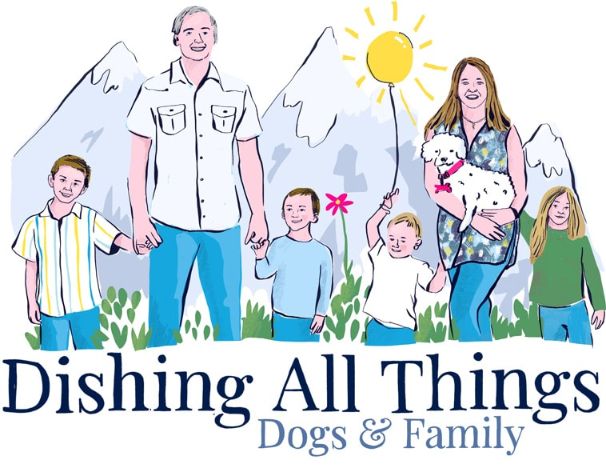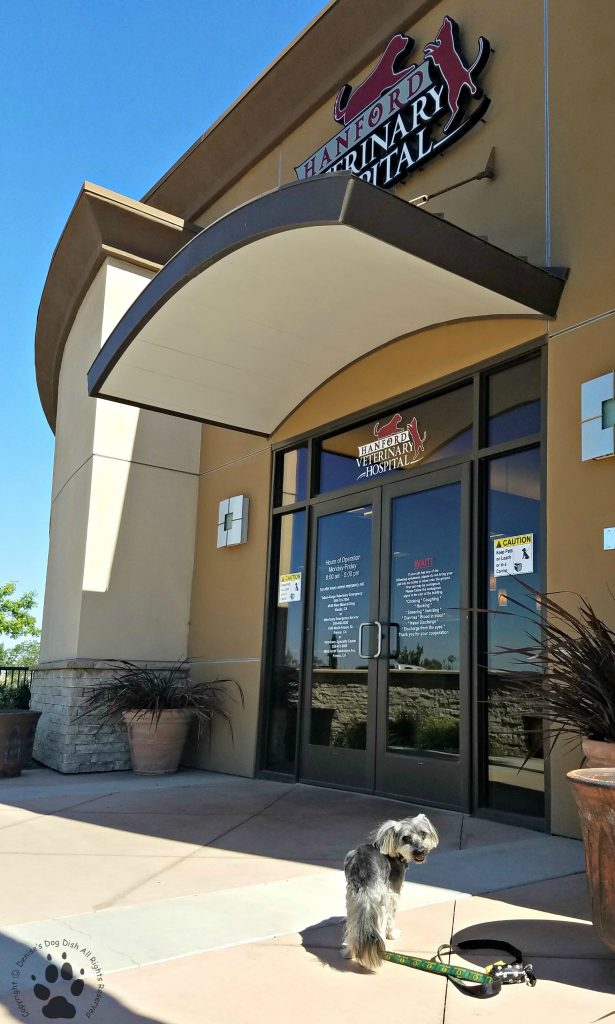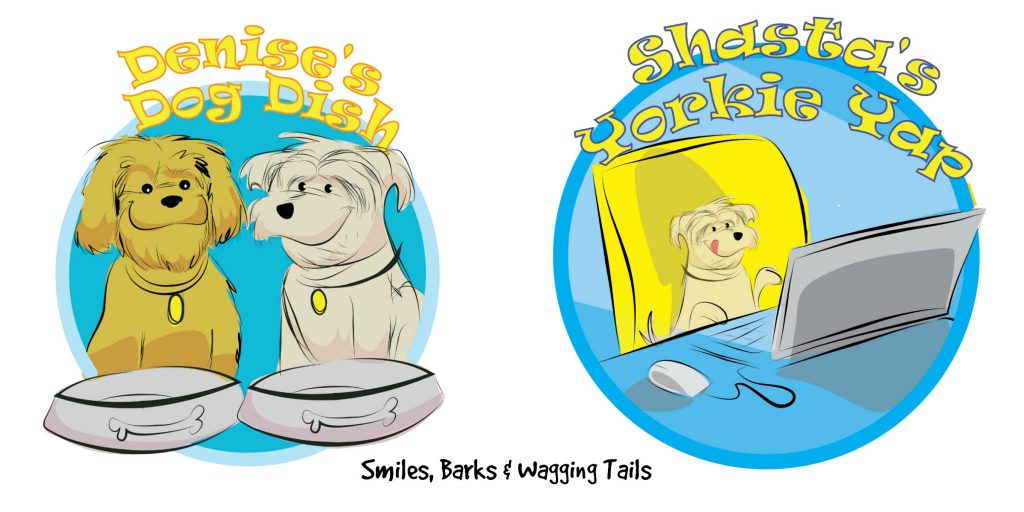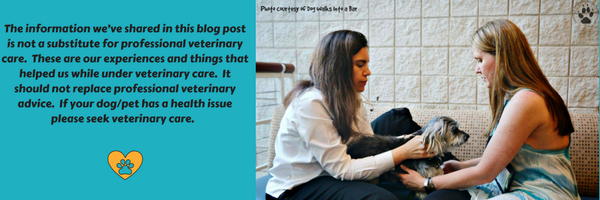Have you ever stopped to consider the similarities between finding the right veterinarian and finding a life partner? As we embarked on the journey of finding a new veterinarian after moving to Central California, I couldn’t help but draw parallels to the process of dating and searching for that perfect match.
Though I’ve been happily married for over thirteen years now, the memories of the angst and uncertainty that accompanied the dating scene are still fresh in my mind. And as I navigated the process of finding a vet for our furry family members, I found myself encountering many of the same challenges and considerations.
From identifying universal characteristics that we were looking for in a veterinarian to navigating the lengthy, painful, and deeply personal process of vetting potential candidates, the similarities were uncanny.
But fear not, fellow pet parents – I’m here to share tips to help you navigate the quest for finding the right veterinarian with confidence and ease. And to make things even easier.
Finding a Life Partner & Vet Step Parallels
- Finding Each Other:
- Randomly Meet: Sometimes, you stumble upon a potential veterinarian by chance – perhaps through a recommendation from a neighbor or a chance encounter at a local pet event.
- Internet Searching: Much like online dating, searching for a vet online allows you to browse through profiles, read reviews, and narrow down your options based on compatibility and fit.
- Friend Setups (Blind Dates): Friends and family can be valuable sources of vet recommendations, setting you up on “blind dates” with practices they trust and have had positive experiences with.
- The First Date:
- This is your initial consultation or meet-and-greet appointment with the veterinarian. It’s a chance to get to know each other, ask questions, and assess compatibility.
- We Are Dating but Still Seeing Other People:
- In this stage, you may be trying out multiple veterinarians to see which one feels like the best fit for you and your pet. It’s important to keep an open mind and explore your options before committing.
- We Are in a Committed Relationship:
- Once you’ve found a veterinarian you trust and feel comfortable with, you enter into a committed relationship with them. You rely on their expertise for your pet’s healthcare needs and cultivate a long-term partnership.
- We Are Dating but I Have Questions:
- At any stage of the relationship, it’s normal to have questions or concerns. Whether it’s about treatment options, communication style, or practice policies, don’t hesitate to voice your concerns and seek clarification.
- I Am Not Sure This Relationship Is Right for Me:
- If you find yourself questioning the relationship with your current veterinarian, it may be time to reassess. Trust your instincts and explore other options if necessary.
- We Discuss and Make a Decision:
- Ultimately, you and your veterinarian should be able to have open, honest conversations about your pet’s healthcare needs and your expectations. Together, you’ll make a decision to either continue the relationship or part ways and start the search anew.
By viewing the process of finding a veterinarian through the lens of a romantic relationship, you can approach it with a similar level of care, consideration, and commitment to finding the perfect match for your furry friend.
Other Vet Considerations
There are so many factors to consider when searching for the right vet but there are also some characteristics we are all looking to find. My top five include.
- Take a clinic tour
- Is it clean, modern and well organized?
- Friendly staff & vet
- Is it difficult to make a well visit?
- Are the staff helpful?
- Consider how it will feel when you call in urgently when your pet is ill as this will be a much more stressful time.
- Are there several vets in the office? Can you request a particular vet when making an appointment?
- How does the vet interact with your pet? If your vet interacts well with your pet it will decrease your pet’s stress during their visits.
- Respectful communication
- Remember this goes both ways. I am a human Nurse Practitioner and find it amazing how much crossover there is between human and dog health but I am not a vet. I respect what it takes to become a vet and the knowledge acquired.
- I will also have a lot of questions. I do not like to leave feeling like my questions were annoying or patronized by my dog’s vet. How does the vet respond to your questions? A well visit is a great place to figure this out. Your questions are just as important but are not asked when you are under the stress of illness. How the vet manages and answers your questions now gives you an understanding of how they will manage the stress filled situations. Will they add a calming presence or add to your stress?
- Like-minded philosophies
- I am a pet parent, with all that implies. I will go to the ends of the earth for my dog’s quality of life. I am always searching for an alternative, new and researched based treatments for my dog. I call this practice Researched-Based Pet Parenting. I want my vet to be doing the same research as well as open to the discussion of possible new treatment options.
- Fees and your budget
- What types of payment do they accept? If you have pet health insurance, do they accept your plan? It is important to know, in advance, that you can afford and will be able to pay the vet’s bills.
Why I Choose an AAHA Accredited Vet
The American Animal Hospital Association is the only accrediting agency for the United States and Canada. Most pet parents, and that used to include me, do not realize accreditation is not a requirement. We are used to human hospitals where it is mandatory.
Accreditation means the office is meeting the highest level of veterinary care. Each renewal takes place every 3 years.
AAHA Standards
- Through: A full exam of the entire patient ensures the Vet has a completed picture of your pet’s health.
- Responsive: As the AAHA website says, “every second counts” when there is an emergency. The standard is to have everything stocked and well labeled for the office’s response.
- Sanitary: Critical infection control through washing hands and keeping all patient areas clean.
- Safe: Keeping the pet safe and comfortable during exams is a priority. As well as mandatory training for all staff regarding compassionate care.
AAHA Guidelines
In human medicine, we have practice guidelines. Researched-based statements and recommendations to help optimize patient care. AAHA guidelines provide the same researched-based recommendations for veterinary clinics.
- Diabetes Management
- Canine Vaccination
- Canine and Feline Oncology
- Canine and Feline Behavioral Management
- Dental Care
- Life-stages
- Weight Management
- Pain Management
- Anesthesia
- Fluid Therapy
- Preventative Medicine
Their guidelines are comprehensive and if you want to read more they are all available on the AAHA website here.
Breaking up is hard to do…
In 2016, I first learned about the American Animal Hospital Association (AAHA) and their certified vet locator. At the time, I was content with our current vet, even though they weren’t AAHA-certified. After all, they provided great care, and I didn’t see a reason to change.
But as time went on and Shasta’s arthritis worsened, I realized that I needed to explore all our options for pain management. Despite my efforts to discuss this with our vet, I left with only an anti-inflammatory medication.
It wasn’t until BlogPaws 2017 that I truly understood the value of AAHA certification. Listening to Dr. Heather Loewnser speak about it brought tears to my eyes as I realized how much more we could be doing for Shasta’s pain. I immediately turned to the AAHA website, found a certified vet in our area, and scheduled an appointment before leaving the conference.
This experience taught me the importance of finding a vet whose philosophy aligns with my own. While our first vet was excellent, their approach was more in line with a “farm vet” philosophy – practical and efficient, but perhaps not as focused on the individual needs of a pet parent like myself.
Having a vet who understands and respects the bond between a pet and their owner is crucial to providing the best possible care. AAHA certification serves as a valuable indicator of a vet’s commitment to excellence and their willingness to go above and beyond for their patients.
So if you find yourself in a similar situation, I encourage you to consider the benefits of choosing an AAHA-certified vet. And if you’re already satisfied with your current vet, don’t hesitate to suggest that they pursue certification – it could make a world of difference for their practice and the pets they care for.
- I will manage a chronic illness, like Arthritis, Allergies, Cushing’s Disease, and Diabetes.
- I want to understand the treatment plan and all options including holistic.
- I will go to the ends of the earth to improve my dog’s quality of life. (Keeping track of your pet’s health-Interactive Pet Camera and Whistle Monitor)
- I want to keep them with me for as long as possible. (How Do We Know When It Is Time to Say Goodbye-Pet Hospice)
AAHA helped me find the right vet…. So whether you’re searching for the perfect life partner or the perfect vet for your furry friends, rest assured that with a little patience, perseverance, and the right guidance, you’ll find the perfect match in no time.





Yes. We’ve vet shopped a lot actually. Some I liked but were far away and others we had horrid experiences with. Finding a good vet can be tricky!
It can be so difficult. I have decided I am willing to drive the distance.
I know that our vets who are brothers – one specializes in cats, the other in dogs LOVE animals and for the most part we are very happy with them. Sometimes I do not know if our philosophies totally align but I do not mind hearing options and opinion. They are very educated but I want to see if they are on that list! Just curious – it would not change my mind. Also, another thing I like a lot is they are less than a mile away! That is very nice. They do tend to talk A LOT and they talk in technical terms then explain in layman terms so I always learn something new and have it explained to me. LOL I love your list of things to look for in a vet! Its very comprehensive and if we ever need to find a new one I will use it! You are right, finding the right vet is a lot like finding the right life partner and so far I have not done well with that BOL! I guess I got luckier with the vet than the man.
The most important thing is that you are happy with your vet. It is so great that you have found a good one. Hearing different opinions is great and so important to be able to share back and forth helping you make the best decision you can.
I love this so much! I’ve been meaning to write a post similar to it because I feel like this is very important for you, your pup, and your vet. It’ll make life so much easier and make every visit enjoyable to everyone involved. As a vet tech, i see way too many clients who come in with different views than my doctor and end up waisting money and time because they do or listen to any of the docs recommendations because they don’t trust and respect her. It definitely puts their pups at risk.
Wow, I really appreciate the feedback. Especially with you working in the field. Hopefully, it’ll help others too
These are all great helpful tips and advice for finding the right vet. I also like to see how the vets interact with my pet and if they have a passion for their job. I went to one vet once as a new patient with an appointment and I could tell within the first 5 minutes that the vet was uncomfortable with cats so I had to switch immediately. Definitely listen to your intuition too. Nice post.
It is so important to find the right fit!
I love the comparison of finding the right to finding the right partner, it is so true! It can be hard to find the right vet and it’s important to find a vet that is the right fit for us and our pup!
🐕🐶
Great tips! I take vet care very seriously, and I would never just “pick” someone. I have quite a list of criteria that I can’t compromise on, because I know my dog’s life depends on making the right choice. I’ve had a couple of vets that caused the death of 2 of my dogs, and I’ve had amazing ones, and my current vet is the best of the best. I couldn’t care for my dogs as well as I do without his help.
I know as senior pet parents it becomes even more important and you have had tragic events with the wrong vets. It is crazy how many countries you have needed to search for new vets in.
Great tips and I love how you compare it to dating, because you are right, you have to feel comfortable, at ease and know that your vet thinks/feels the same as you do.
It really is funny how similar it is.
Having had mixed experiences with veterinarians, to say the least, finding a new veterinarian is a stressful event for me. When we were moving, I was quite concerned about being able to find a good one. I had an extensive list of requirements they ought to pass.
Moving is difficult for so many reasons. Finding a new vet is definitely high on the stress list!
Great tips. I feel I got lucky with my vet, since I didn’t really do any research beforehand.
Thanks so sharing such important tips. As your dog’s biggest advocate, finding a vet is crucial. You’ve given pet parents some great tools to help them find the perfect match! I hope to have a chance to catch up with you at the BlogPaws conference!
I am hoping to catch up with you too!
We have been so lucky with our primary vets. Unfortunately, they saved him in the chocolate emergency but the next visit, I did not see eye to eye with them on Kilo for a number of reasons so I ended up taking him an hour away to the vet of his rescue who is more patient and tolerant with difficult cases, and open to a wider variety of treatment options. We are due to go back- arggh.
Sometimes the drive is totally worth it.
Those are some great tips! Finding the right vet for a pet is critical in a pet’s care. It’s so important to take your time and feel comfortable getting a second opinion if you ever are unsure about a treatment protocol. Is that our friend Dr. Buzby? We love her!
It is Dr. Buzby. She has known Shasta since BlogPaws Nashville and helped his pain with acupuncture last year in Myrtle Beach. Bryn Noelle from “A Dog Walks Into a Bar” took the photos.
Very useful tips for finding the right vet! We are so lucky to have the SF SPCA vet’s office closeby. they have very gentle caring vets and the staff is so kind!
How wonderful to find a great vet that’s close too.
These are definitely helpful. I’m really happy with our vet, although I didn’t know about the AAHA. I took it for granted that all vets were accredited.
Finding a vet you trust is so important! My vets are pretty good except they only have one door for clients and a tiny waiting room. Since one of my dogs is uncomfortable around strangers, I usually wait outside.
Before moving, I had a vet clinic that was AAHA certified. It really was ideal in my opinion. Simple things like a separate exit door, two waiting areas, made it so much easier to navigate. They also had someone after hours to provide care for the patients, which I found very comforting.
You are so right about how hard it can be to find the right vet partner. Our vet of the last 8 years moved and now I’m at the point where I’m deciding whether or not to stay and just let the other vets in the practice take over. They don’t have much experience with giant breed dogs and the unique needs of mastiffs. This might be the only thing I would add to your list. For those people with pure bred dogs, I think the vet you see should have a good deal of experience with the breed. I was just at the vet last week and after paying them $609 for two preventative visits for both dogs, I still question the lump on Juniors neck and a lump on Sulley’s chest. The latter was dismissed as due to Sulley needing to lose a few pounds, but I’m convinced there is a lump in there. Anyway, my intuition is telling me to leave and find a new vet. Thank you for such a timely, informative post!!
My solution was two vets. One is almost 100% holistic the other is the vet we’ve had since the wee one needed his first shots and travel documents. It was the only way I could get both sides of an issue without one taking over the other. My vets know about each other so I’m not cheating on them. 🙂
This is really helpful. And I agree that finding the right vet is so important. After all, our pet’s health depends on it and we want only the best for them. Unfortunately, I know some vets that only do it for the money and don’t really care about the pet’s wellbeing.
Great article!
I really like the analogy with dating.
There are so many factors to look into and we certainly have to be prepared to “shop around” a bit to find the best care possible for our loved ones.
I love that you compared finding a vet to finding a life partner. I can totally see the comparison. Also, thank you for mentioning that I will want to find a vet clinic that accepts your pet insurance or has payment plans. My dad has been thinking of getting a cat, so I’ll totally share this article with him. Thanks so much for sharing.
I’m so glad the information is helpful and your dad will be able to use it too!
Thank you for suggesting you should consider how the vet clinic is going to feel when your pet is ill and it is a more stressful time. My sister just got her first puppy and is needing to find a vet. I’ll have to do some research and see if I can help her find the perfect vet in her area.
Yay for getting a new puppy!! Glad the tips will help you find a Vet. 💙🐶
I like how you mentioned that you’ll want to choose a vet who interacts kindly with your pet. I also think it’s important to watch your pet’s body language, especially since smaller animals can get heart attacks from fear. My friend recently adopted a dog, so these tips will help her find a great vet!
You are definitely right. I appreciate the added information as I’m not sure small pet owners even know the fear can be hazardous to the pet’s health with such tragic results.
Ask about the longevity of the medical and nursing staff. Staff members who feel empowered to do good medicine and nursing care tend to stay with a practice longer.
Amazing additional tip! Thank you!